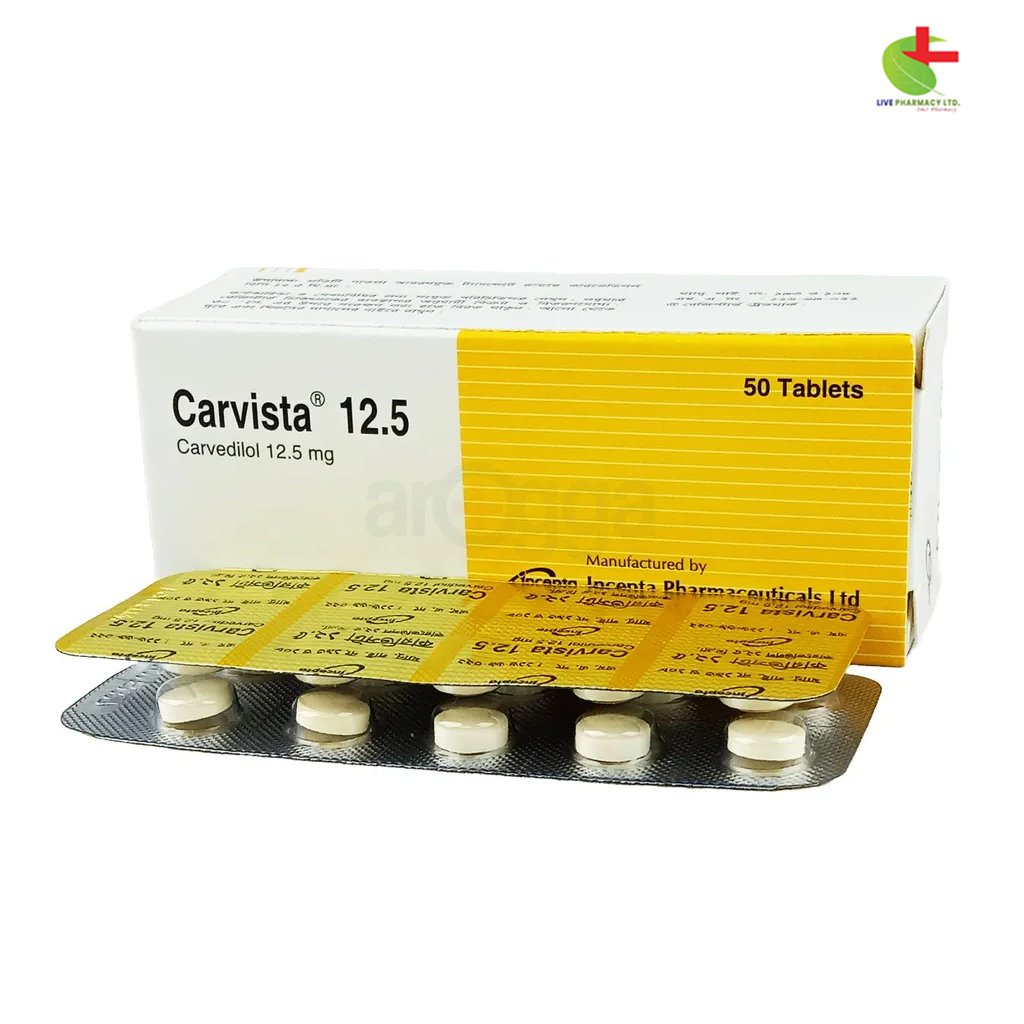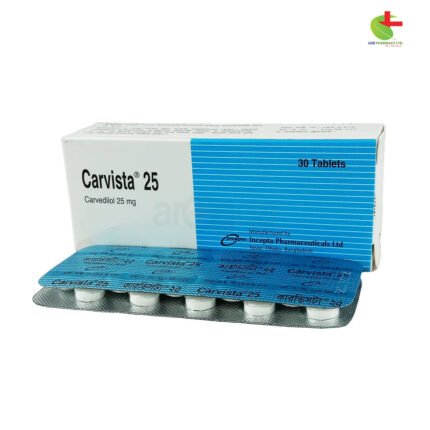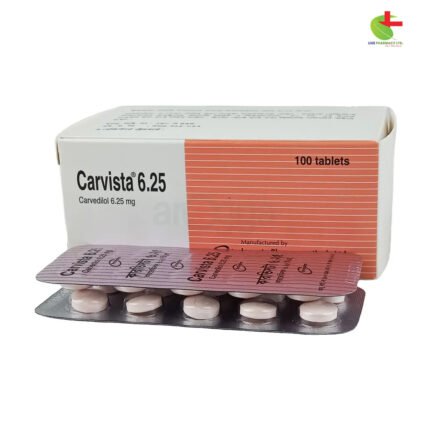Carvista 12.5
50.00৳ Strip
- Carvista is an effective treatment for mild to severe heart failure of ischemic or cardiomyopathic origin.
- Often used alongside digitalis, diuretics, and ACE inhibitors to enhance heart health.
- Formulated with Carvedilol, it also manages hypertension and angina.
- Suitable for patients who cannot tolerate ACE inhibitors, helping to reduce cardiovascular risks.
- Always consult a healthcare professional before use.
 Brand
Brand
|
Incepta Pharmaceuticals Ltd |
|---|---|
 Generics
Generics
|
Carvedilol |
 Type
Type
|
Tablet |
Indications
Carvista is prescribed for the management of mild to severe heart failure, whether of ischemic or cardiomyopathic origin. It is typically used alongside digitalis, diuretics, and ACE inhibitors to slow disease progression, evidenced by reductions in cardiovascular-related mortality, hospitalization, or adjustments to heart failure medications. Carvista may be suitable for patients who cannot tolerate ACE inhibitors and those not undergoing digitalis, hydralazine, or nitrate therapy.
Always consult a registered healthcare professional before use.
Pharmacology
Carvista contains Carvedilol, a cardiovascular agent known for its non-selective antagonism of β-adrenergic receptors and significant α-adrenergic antagonistic activity. It also exhibits antiproliferative properties and scavenges reactive free radicals. This medication is effective for treating hypertension, angina pectoris, and congestive heart failure.
Dosage & Administration
- For Hypertension: Start with 12.5 mg once daily, increasing to 25 mg daily after 2 days. Further adjustments may occur every 2 weeks, up to a maximum of 50 mg daily in single or divided doses. Elderly patients may find 12.5 mg daily sufficient.
- For Angina Pectoris: Initiate therapy with 12.5 mg twice daily for the first 2 days, then increase to 25 mg twice daily. The maximum for elderly patients is 50 mg daily in divided doses.
- For Heart Failure: Begin with 3.125 mg twice daily (with food), with potential increases at 2-week intervals to 6.25 mg, 12.5 mg, and up to 25 mg twice daily. The maximum dose tolerated is 25 mg twice daily for patients under 85 kg and 50 mg for those over 85 kg.
Always consult a registered healthcare professional before use.
Interactions
- Digoxin: Concomitant use may elevate digoxin levels; monitoring is advised when adjusting Carvista dosage.
- Rifampin: Prior treatment may reduce Carvista levels by 60%.
- Warfarin: Carvista does not affect warfarin’s plasma protein binding.
- Clonidine: Sudden withdrawal of clonidine may cause a pressor reaction; Carvista’s α-blocking effects may help mitigate this.
Contraindications
Carvista is contraindicated in patients with decompensated heart failure requiring intravenous inotropic therapy, bronchial asthma, severe AV block, sick sinus syndrome (without a pacemaker), cardiogenic shock, or severe bradycardia.
Side Effects
Common side effects may include postural hypotension, dizziness, headache, fatigue, gastrointestinal issues, and bradycardia. Less frequently reported effects include diminished circulation, peripheral edema, dry mouth, vision disturbances, and mood changes. Rare complications include angina, AV block, and changes in liver enzymes.
Pregnancy & Lactation
Carvedilol is not recommended during pregnancy or breastfeeding due to insufficient studies and its presence in breast milk. Safety in pediatric populations has not been established.
Precautions & Warnings
Use with caution in patients with hepatic impairment and monitor heart failure status closely for 2-3 hours after initiating or adjusting the dose.
Therapeutic Class
Alpha and beta-adrenoceptor blocking agents.
Storage Conditions
Store below 30°C, protected from light and moisture. Keep out of reach of children.













Reviews
There are no reviews yet.